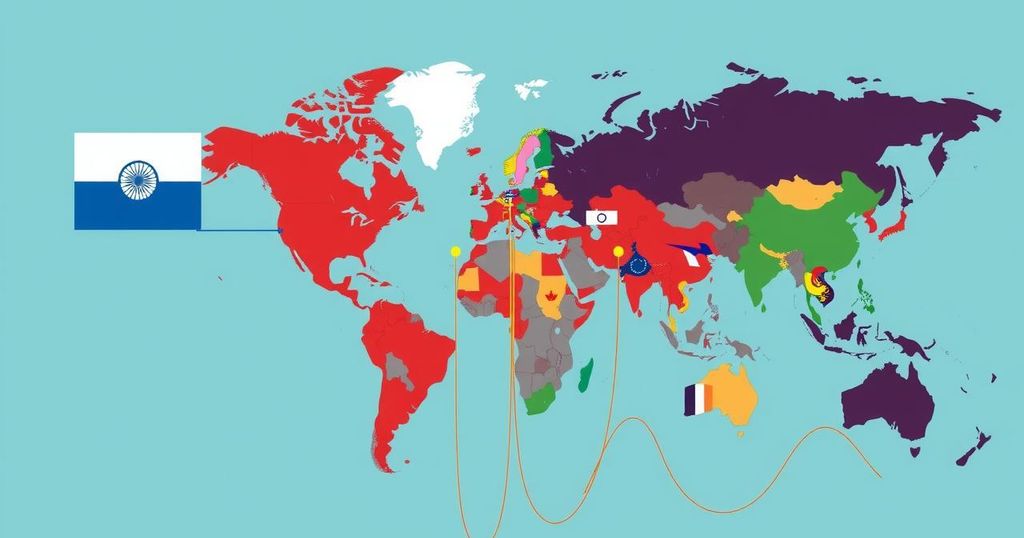In 2024, elections in 70 countries revealed widespread voter discontent with incumbents leading to significant political shifts, including losses for long-standing parties across the globe. The rise of far-right movements and concerns over electoral interference added complexity to the democratic landscape. These events suggest that challenges to established regimes and the integrity of democratic institutions will continue into 2025, as voter dissatisfaction remains high.
In 2024, global elections across approximately 70 countries showcased a pronounced trend of voter discontent directed towards incumbents. Economic difficulties, including inflation exacerbated by geopolitical turmoil, prompted citizens to decisively oust long-standing administrations, with notable examples in India, the United States, Japan, and various nations in Africa. Voter sentiment reflected a growing frustration with the status quo, illustrated by significant political changes in countries where incumbents traditionally maintained power for decades.
In South Africa, the African National Congress (ANC), a dominant force since the end of apartheid, suffered a historical setback and was compelled to forge a coalition with opposition parties. Countries such as Senegal, Ghana, and Botswana witnessed similar voter sentiments leading to the replacement of longstanding governments. Furthermore, in India, the Bharatiya Janata Party (BJP) experienced an unexpected loss that resulted in a coalition government following a decade of governance under Prime Minister Narendra Modi.
Conversely, the rise of far-right movements became increasingly evident, particularly in European nations. The National Rally party in France and the pro-Russia Freedom Party in Austria made significant electoral gains. As populist sentiments surged, many traditional parties faced fragmentation, indicating a shift in political landscapes.
Allegations of electoral interference added further complexity to 2024, particularly in Romania, where declassified intelligence linked Russian influence to the cancellation of a presidential runoff. The implications of such interference raise concerns about the integrity of democratic processes globally.
At the year’s conclusion, uncertainty remained palpable, with global ramifications stemming from significant electoral events, including the reelection of Donald Trump in the United States. Political unrest persisted in several regions, threatening to undermine democratic frameworks established in previous decades. As we approach 2025, a continuing tide of public dissatisfaction appears poised to challenge established political norms, necessitating a thorough evaluation of global democratic health.
The year 2024 was characterized by significant political upheaval across the globe, marked by elections in more than 70 nations. These elections were often influenced by economic disruptions stemming from the COVID-19 pandemic, geopolitical crises, and widespread political dissatisfaction. With many voters expressing their displeasure through the election process, long-term incumbents in various jurisdictions faced unprecedented challenges. Additionally, the resurgence of far-right politics and allegations of foreign electoral meddling further complicated the political landscape, creating an environment of volatility and uncertainty for democratic institutions worldwide.
In summary, the year 2024 revealed a profound wave of discontent among voters globally, leading to significant political turnover in numerous countries. The outcomes highlighted a rejection of incumbents amid lingering pandemic repercussions and economic strife while simultaneously indicating a rise in nationalist and populist sentiments. The challenges posed by electoral interference and political unrest underscore the fragile state of democracy, suggesting that the upcoming years may continue to test the resilience of democratic systems as they adapt to the evolving expectations of their constituents.
Original Source: www.news4jax.com






